スタイルズ荘の怪事件 第一章

原文対訳
Chapter List
| CHAPTER Ⅰ. | I GO TO STYLES |
| CHAPTER II. | THE 16TH AND 17TH OF JULY |
| CHAPTER III. | THE NIGHT OF THE TRAGEDY |
| CHAPTER IV. | POIROT INVESTIGATES |
| CHAPTER V. | “IT ISN’T STRYCHNINE, IS IT?” |
| CHAPTER VI. | THE INQUEST |
| CHAPTER VII. | POIROT PAYS HIS DEBTS |
| CHAPTER VIII. | FRESH SUSPICIONS |
| CHAPTER IX. | DR. BAUERSTEIN |
| CHAPTER X. | THE ARREST |
| CHAPTER XI. | THE CASE FOR THE PROSECUTION |
| CHAPTER XII. | THE LAST LINK |
| CHAPTER XIII. | POIROT EXPLAINS |
CHAPTER I.
I GO TO STYLES
スタイルズ荘へ
The intense interest aroused in the public by what was known at the time as “The Styles Case” has now somewhat subsided.
evertheless, in view of the world-wide notoriety which attended it,I have been asked, both by my friend Poirot and the family themselves, to write an account of the whole story.
This, we trust, will effectually silence the sensational rumours which still persist.
I will therefore briefly set down the circumstances which led to my being connected with the affair.
当時「スタイルズ事件」として知られていた世間の激しく熱狂的な関心は、今ではいくらか収まっている。
それにもかかわらず、この事件が広く世間から悪評が付いていたので、私の友人ポアロと家族から、この一部始終を記録するよう頼まれていた。
そうすることで、いまだに広まっている衝撃的な噂を効果的に沈静化できることを願っている。
そこで、私がこの事件に関わることになった経緯を簡単に記しておこうと思う。
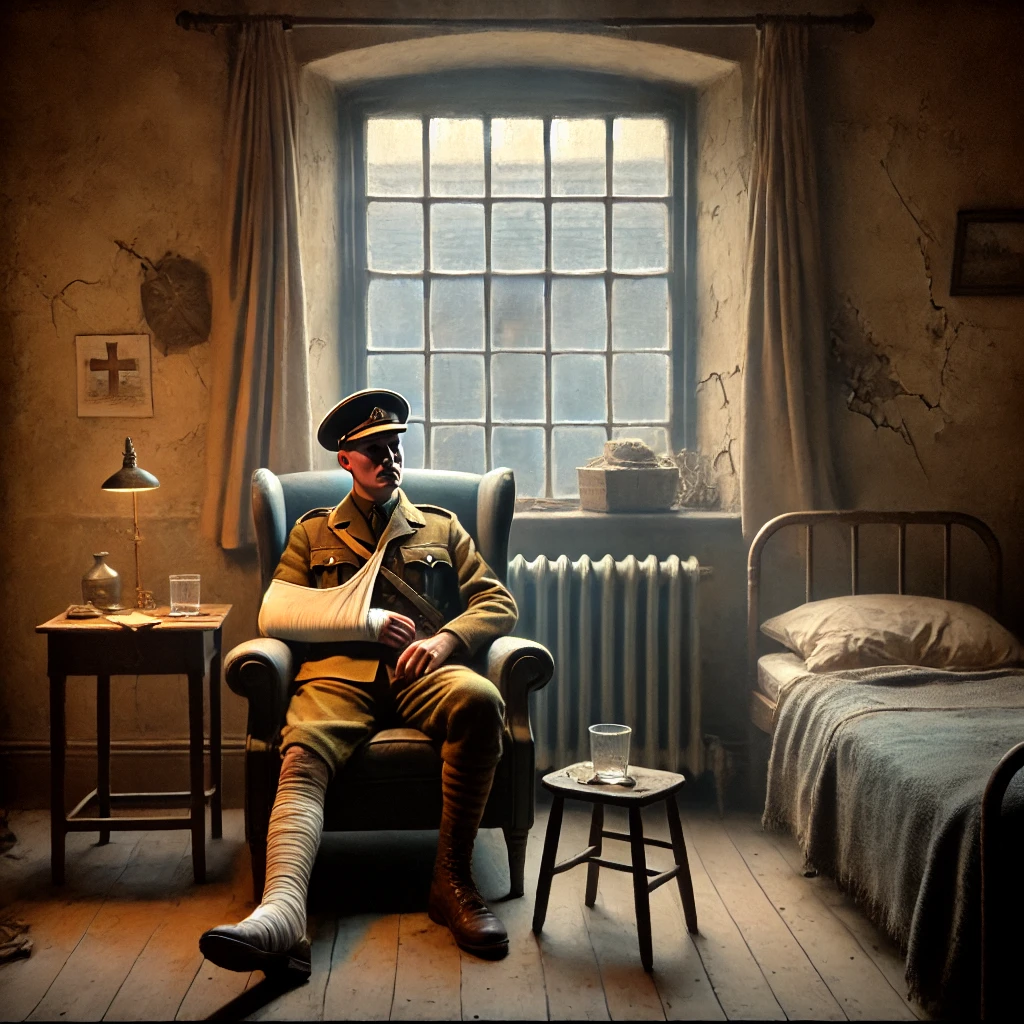
I had been invalided home from the Front; and, after spending some months in a rather depressing Convalescent Home, was given a month’s sick leave.
Having no near relations or friends, I was trying to make up my mind what to do, when I ran across John Cavendish.
私は傷病兵として前線から帰還させられた後、数ヶ月の間、ちょっと陰鬱な療養施設で過ごし、1か月の傷病休暇を与えられた。
近しい親戚や友人もおらず、何をするべきか決めかねていたとき、ジョン・キャヴェンディッシュに偶然出会った。
I had seen very little of him for some years.I
ndeed, I had never known him particularly well.
He was a good fifteen years my senior, for one thing, though he hardly looked his forty-five years.
As a boy, though, I had often stayed at Styles, his mother’s place in Essex.
We had a good yarn about old times, and it ended in his inviting me down to Styles to spend my leave there.
彼とはここ数年ほとんど会っていなかった。
実際、彼を特に良く知っていたわけでもない。
というのも、私より15歳も年上だったからであるが、45歳という年齢の割には若々しく見えた。
ただ、子どもの頃は彼の母親が所有するエセックスのスタイルズ邸に何度か泊まったことがあった。
懐かしい話で盛り上がり、その結果、休暇をスタイルズで過ごすよう彼から誘われた。

“The mater will be delighted to see you again—after all those years,” he added.
「母も、君にまた会えるのを喜ぶだろうよ——何年ぶりになるんだ」と彼は付け加えた。

“Your mother keeps well?” I asked.
「お母さんは元気なのかい?」と私は尋ねた。
“Oh, yes. I suppose you know that she has married again?”
「ああ、元気だよ。彼女が再婚したことは知っているよね?」
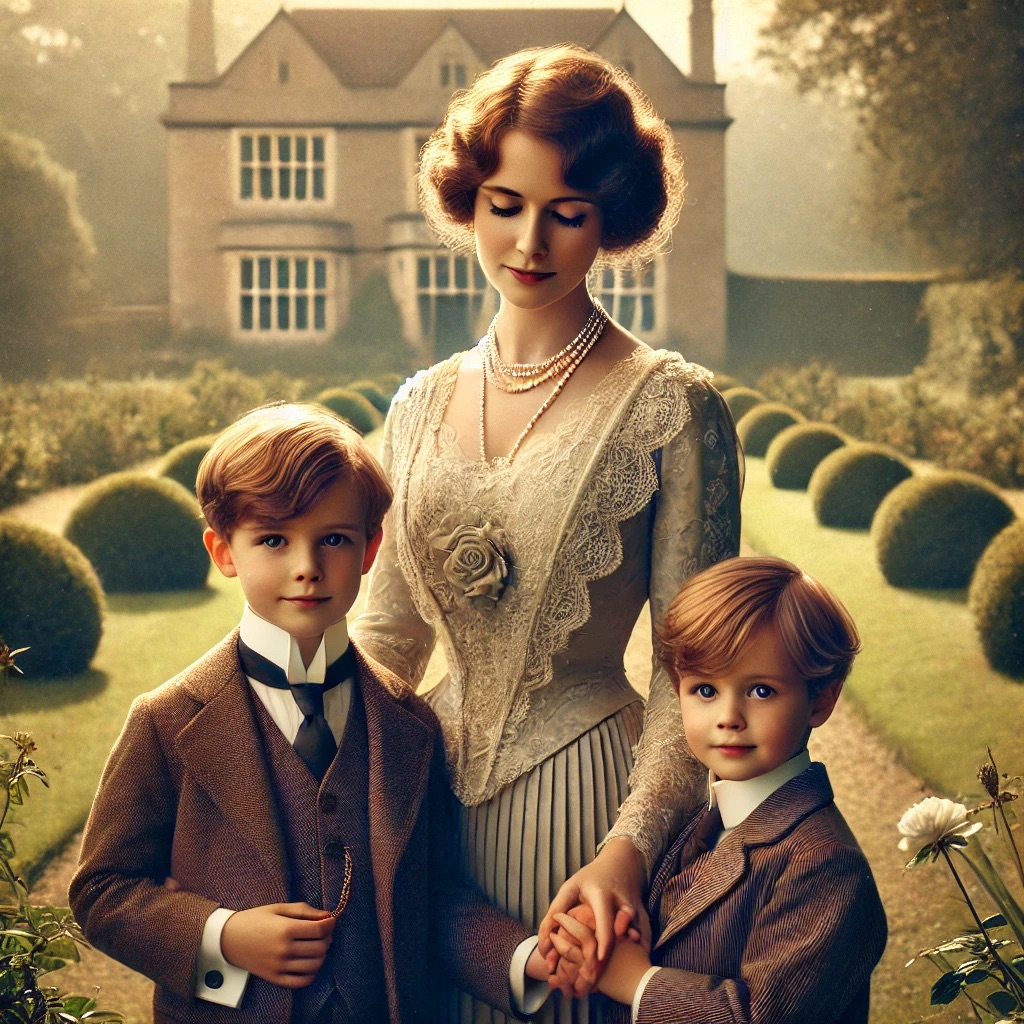
I am afraid I showed my surprise rather plainly.
Mrs. Cavendish, who had married John’s father when he was a widower with two sons, had been a handsome woman of middle-age as I remembered her.
私は驚きを隠せず、それが顔に出てしまったのではないか心配になった。
キャヴェンディッシュ夫人は、二人の息子を抱えて独り身だったジョンの父親と結婚したのだが、私の記憶では中年の魅力的な女性だった。
She certainly could not be a day less than seventy now.
She was a most generous woman, and possessed a considerable fortune of her own.
I recalled her as an energetic, autocratic personality, somewhat inclined to charitable and social notoriety, with a fondness for opening bazaars and playing the Lady Bountiful.
今では少なくとも70歳にはなっているはずだ。
大変気前のいい女性で、彼女自身かなりの財産を持ってた。
彼女は精力的で専制的な性格の持ち主で、バサーを開催することを好み、慈悲深い貴婦人を振る舞って、やや慈善的な社交界での評判に傾倒した人物だったことを思い出した。
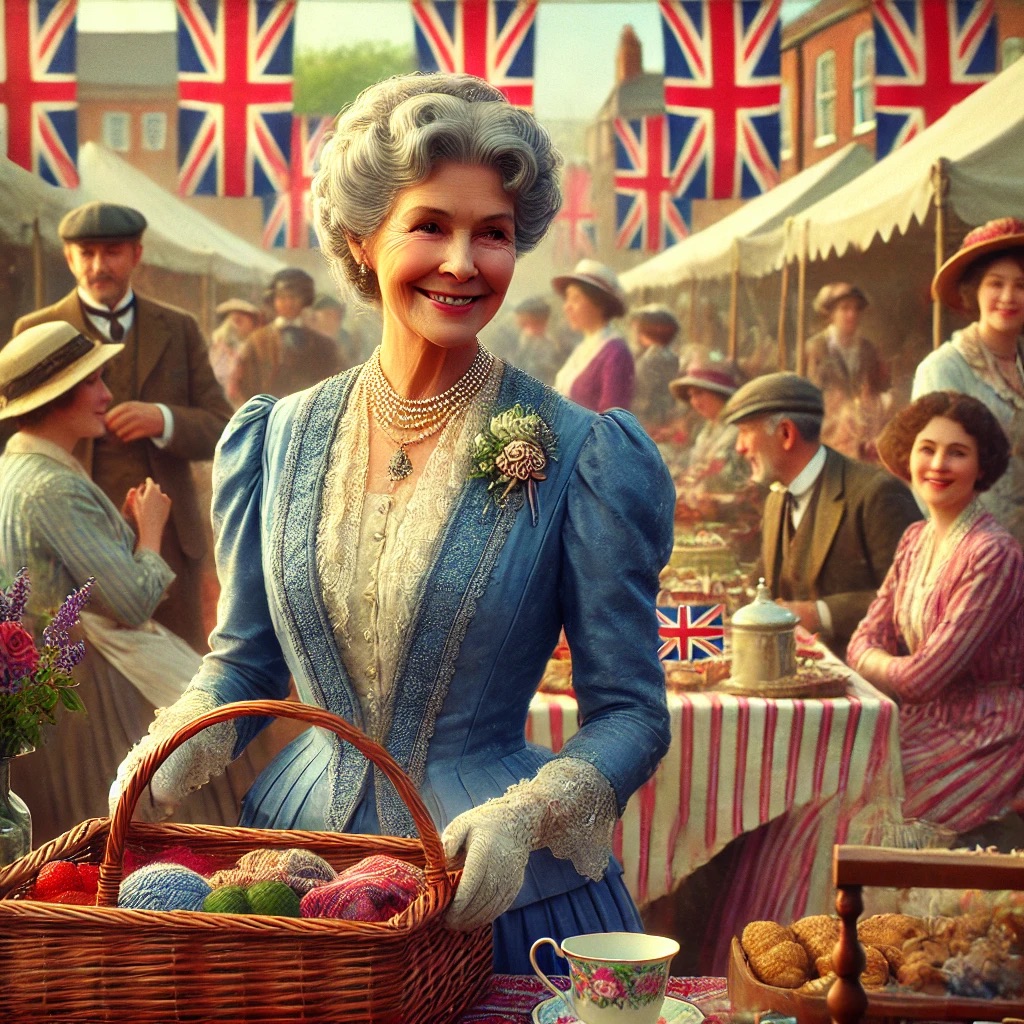
Their country-place, Styles Court, had been purchased by Mr. Cavendish early in their married life.
He had been completely under his wife’s ascendancy, so much so that, on dying, he left the place to her for her lifetime, as well as the larger part of his income; an arrangement that was distinctly unfair to his two sons.
Their step-mother, however, had always been most generous to them; indeed, they were so young at the time of their father’s remarriage that they always thought of her as their own mother.
夫妻の田舎の邸宅であるスタイルズ荘は、結婚生活の初期にキャヴェンディッシュ氏が購入したものだった。
キャヴェンディッシュ氏は夫人の言うがままだったので、彼が亡くなる際には、彼の収入の大部分と同じく、この邸宅も彼女の生涯の居場所として残したのであった。この取り決めは、彼の二人の息子たちにとって明らかに不公平だった。
しかし、彼らの継母は常に息子たちに非常に寛大だった。実際、彼らは父親が再婚したときまだ非常に幼かったことから、彼女のことを実の母親のように思っていた。

Lawrence, the younger, had been a delicate youth.
He had qualified as a doctor but early relinquished the profession of medicine, and lived at home while pursuing literary ambitions; though his verses never had any marked success.
弟のローレンスは病弱な幼少時代を過ごした。
医者の資格を取得したが、早々と医療の仕事は辞めて、家に住みながら文学での成功を追い求めていた。
しかし、彼の文学は特に成功を収めてはいなかった。
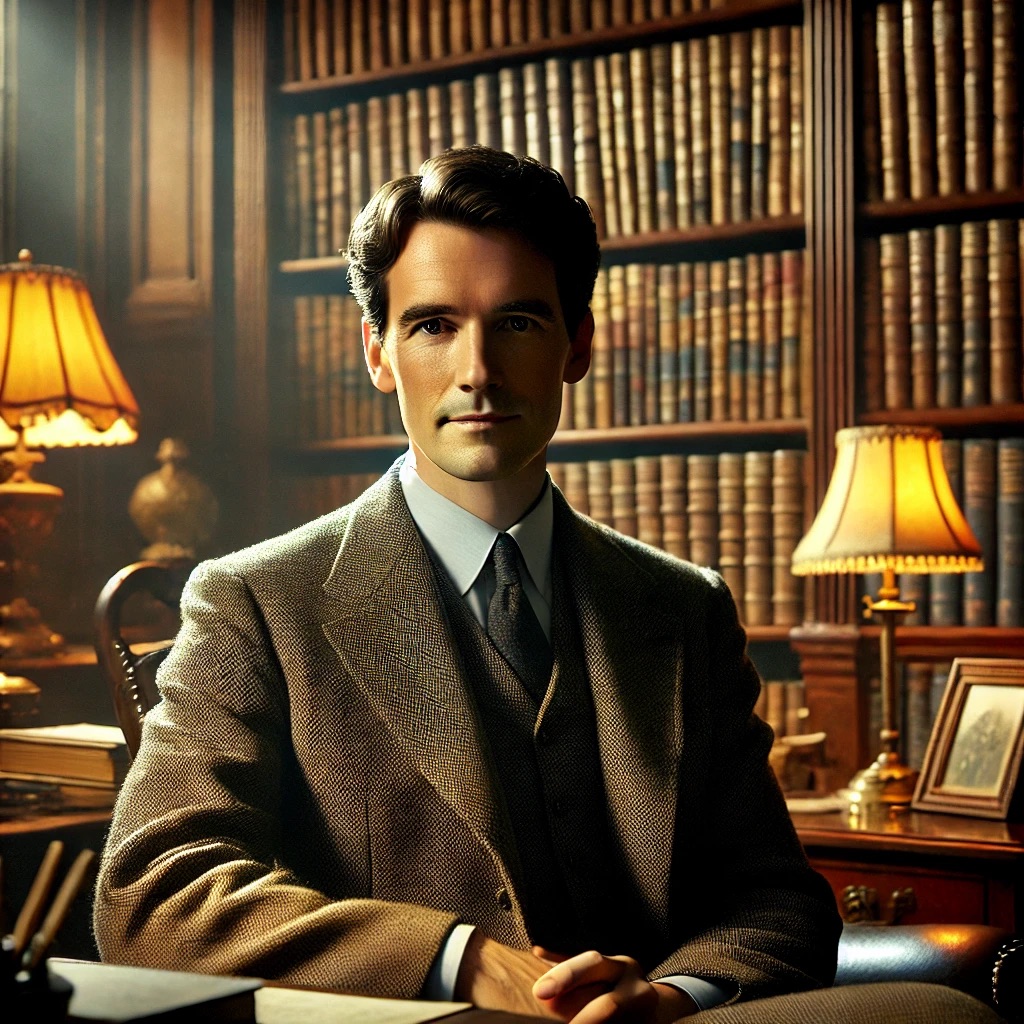
John practised for some time as a barrister, but had finally settled down to the more congenial life of a country squire.
He had married two years ago, and had taken his wife to live at Styles,
though I entertained a shrewd suspicion that he would have preferred his mother to increase his allowance, which would have enabled him to have a home of his own.
ジョンはしばらくの間弁護士として活動していたが、最終的には地方の地主として、より性に合った生活に落ち着いていた。
彼は2年前に結婚し、妻と共にスタイルズ荘で生活していたが、彼は内心では母親に手当を増やしてもらって、自分の家を持てるようになることを望んでいたのではないかと、私は密かに邪推していた。
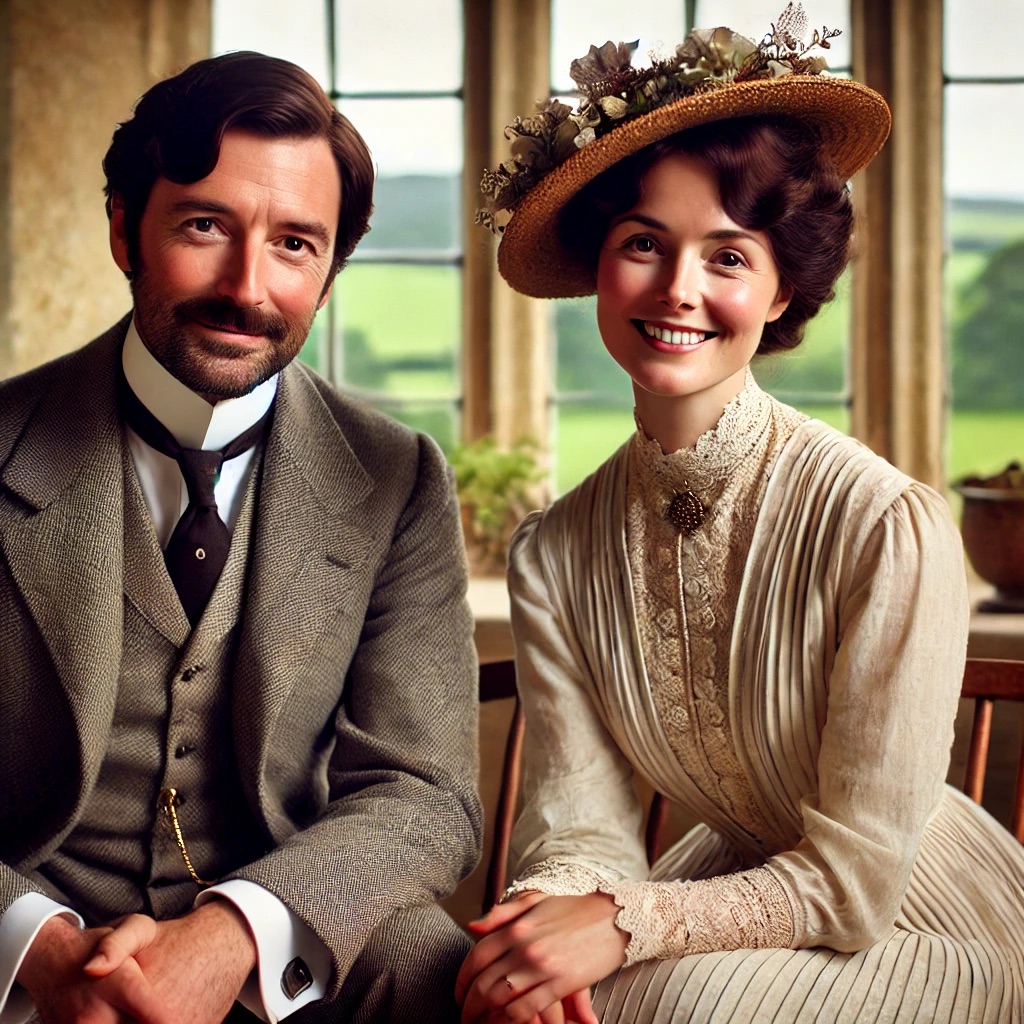
Mrs. Cavendish, however, was a lady who liked to make her own plans, and expected other people to fall in with them, and in this case she certainly had the whip hand, namely: the purse strings.
しかし、キャヴェンディッシュ夫人は何でも自分の思う通りにしたがる女性で、他の者はそれに従うものと思い込んでいた。ということは、明らかに彼女が主導権、つまり財布の紐を握っていたということである。
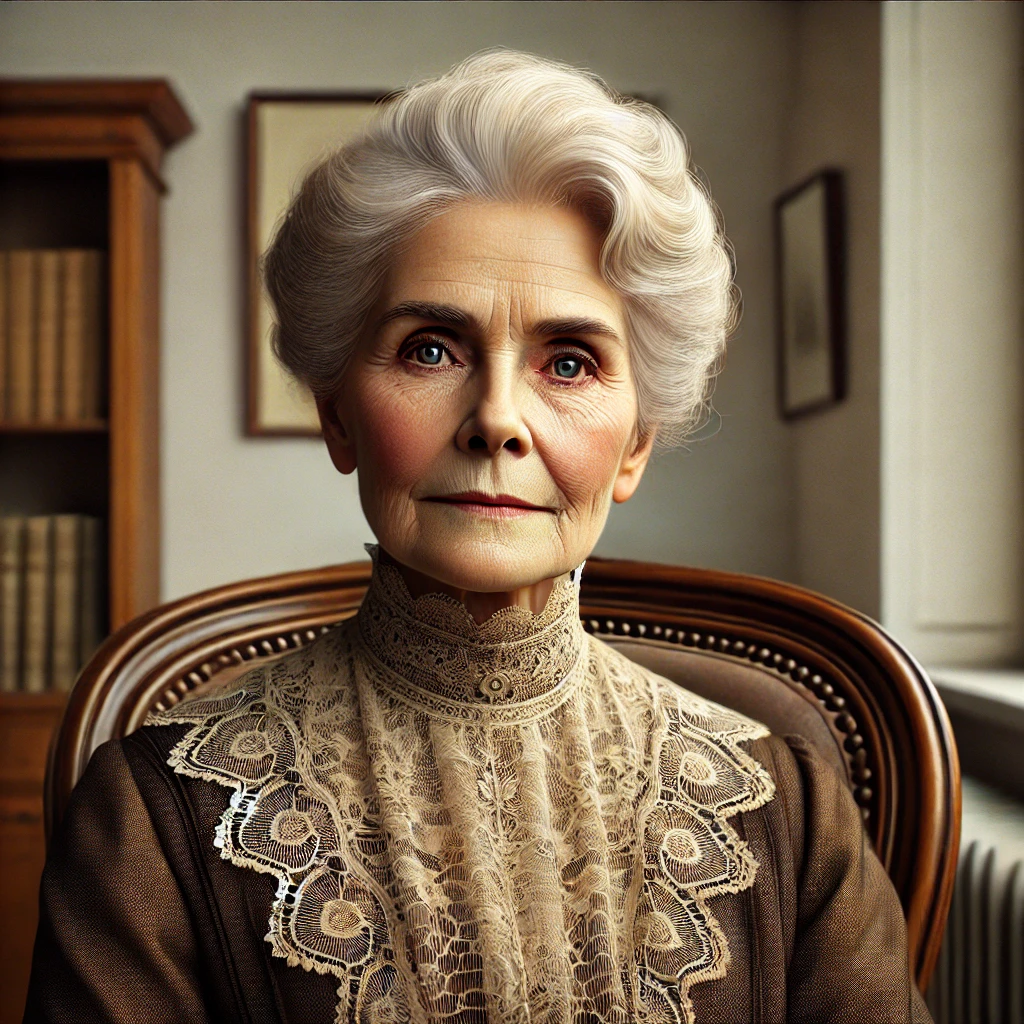
John noticed my surprise at the news of his mother’s remarriage and smiled rather ruefully.
“Rotten little bounder too!”
he said savagely.
“I can tell you, Hastings, it’s making life jolly difficult for us.
As for Evie ——you remember Evie?”
ジョンは、私が彼の母親の再婚のニュースに驚いているのを察して、少し苦々しく笑みを浮かべた。
「まったく、くだらない厚かましい奴さ!」と彼は怒りを込めて言った。
「ヘイスティングス、これが僕らの生活をとても厄介にしてるんだ。
エヴィーにしたって——君はエヴィーのことは覚えてるかい?」

“No.”
「いいや。」
“Oh, I suppose she was after your timeShe’s the mater’s factotum, companion, Jack of all trades!
A great sport—old Evie!
Not precisely young and beautiful, but as game as they make them.”
「ああ、たぶん君が来ていた頃より後だったんだな。彼女は母さんの雑用係、付き添い、つまり何でも屋さ!
大したもんだよーエヴィ婦人は!
若くて美しいってわけじゃないけど、どこまでも根性あるよ。」

“You were going to say——?”
「君が言おうとしていたのは——?」
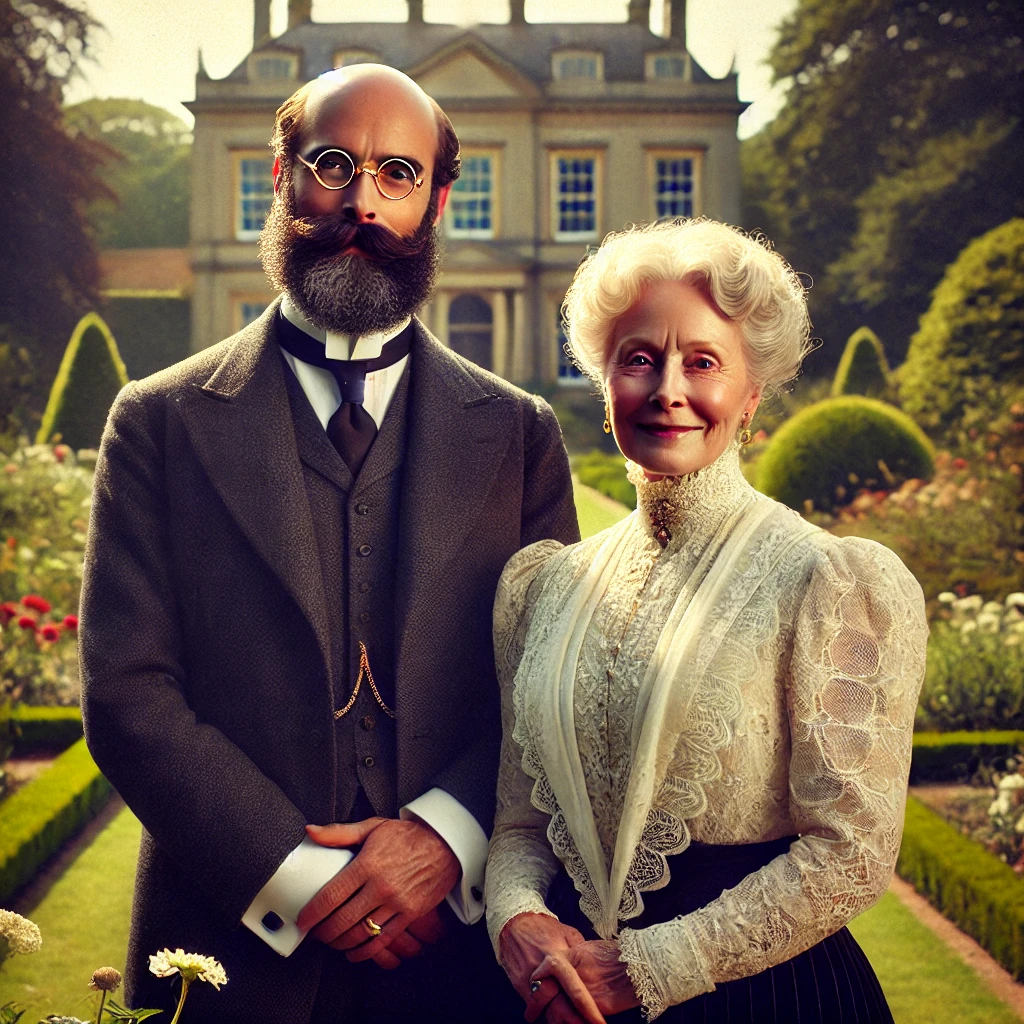
“Oh, this fellow!
He turned up from nowhere, on the pretext of being a second cousin or something of Evie’s, though she didn’t seem particularly keen to acknowledge the relationship.
The fellow is an absolute outsider, anyone can see that.
He’s got a great black beard, and wears patent leather boots in all weathers!
But the mater cottoned to him at once, took him on as secretary —— you know how she’s always running a hundred societies?”
「ああ、あいつのことだったな!
どこからともなく現れたんだがね、エヴィーの遠い従兄弟(いとこ)とかなんとかいうんだが、エヴィーは特にその親戚関係を認めたがっているようには見えなかったんだ。
あいつは絶対よそかた来た人間だってことは、誰だってわかるよ。
黒々とした大きなひげを生やしていて、どんな天気でもエナメルの革靴を履いてるんだ!
しかし、母さんはこの男をすぐに気に入って、秘書として雇ったんだ —— 母さんがかなりの数の団体にしょっちゅう顔を出しているのを知ってるだろう?」

I nodded.
私はうなずいた。
“Well, of course the war has turned the hundreds into thousands.
No doubt the fellow was very useful to her.
But you could have knocked us all down with a feather when, three months ago, she suddenly announced that she and Alfred were engaged!
The fellow must be at least twenty years younger than she is!
It’s simply barefaced fortune hunting;
but there you are—she is her own mistress, and she’s married him.”
「まあ、戦争のせいで、その『かなりの数』が何倍にも増えたわけだ。
だから、この男は母さんにとってとても役に立ったのは間違いない。
でもね、3か月前に突然、母さんがそのアルフレッドと婚約したと発表したときには、みんな羽根で叩いてもぶっ倒れるほど驚いたよ!
その男、母さんより少なくとも20歳は若いんだぜ!
財産目当てなことは見え見えさ。
しかし、君もわかると思うけど——母さんは自分の考えは曲げない頑固な女性だから、結局は彼と結婚してしまったんだ。」

“It must be a difficult situation for you all.”
「それは君たちにとって厄介に違いないね。」

“Difficult! It’s damnable!”
「ほんと厄介だ!とんでもない話さ!」
Thus it came about that, three days later, I descended from the train at Styles St. Mary, an absurd little station, with no apparent reason for existence, perched up in the midst of green fields and country lanes. John Cavendish was waiting on the platform, and piloted me out to the car.
こうして3日後、私はスタイルズ・セント・メアリーという駅で列車を降り立った。
その駅は面白いほど小さくて、緑の野原と田舎道の真ん中に、存在理由がよく分からないほどぽつんと立っていた。


John Cavendish was waiting on the platform, and piloted me out to the car.
“Got a drop or two of petrol still, you see,” he remarked.
“Mainly owing to the mater’s activities.”
ジョン・カヴェンディッシュがホームで待っており、私を車へと案内してくれた。
「まだ少しはガソリンが手に入るんだ。」と彼は言った。
「これもたいていは母さんがやってる活動のおかげだけどね。」

The village of Styles St.
Mary was situated about two miles from the little station, and Styles Court lay a mile the other side of it.
It was a still, warm day in early July.
As one looked out over the flat Essex country, lying so green and peaceful under the afternoon sun, it seemed almost impossible to believe that, not so very far away, a great war was running its appointed course.
I felt I had suddenly strayed into another world.
スタイルズ・セント・メアリーの村はその小さな駅から約2マイル離れていた。
そのさらに1マイル先にスタイルズ・コートがあった。
その日は7月初めの穏やかで暖かい日だった。
エセックスの田園地帯が午後の太陽の下で緑豊かに、静かに広がっている様子を眺めると、それほど離れていない場所で大戦争が既定路線で繰り広げられているとは到底信じられない気がした。
私は突然、別の世界に迷い込んだような感じがしたのだ。

As we turned in at the lodge gates, John said:
“I’m afraid you’ll find it very quiet down here, Hastings.”
門の管理小屋を通り過ぎたとき、ジョンが言った。
「静かすぎて何にもないところに来てしまったと思ってるんだろう、ヘイスティングス。」
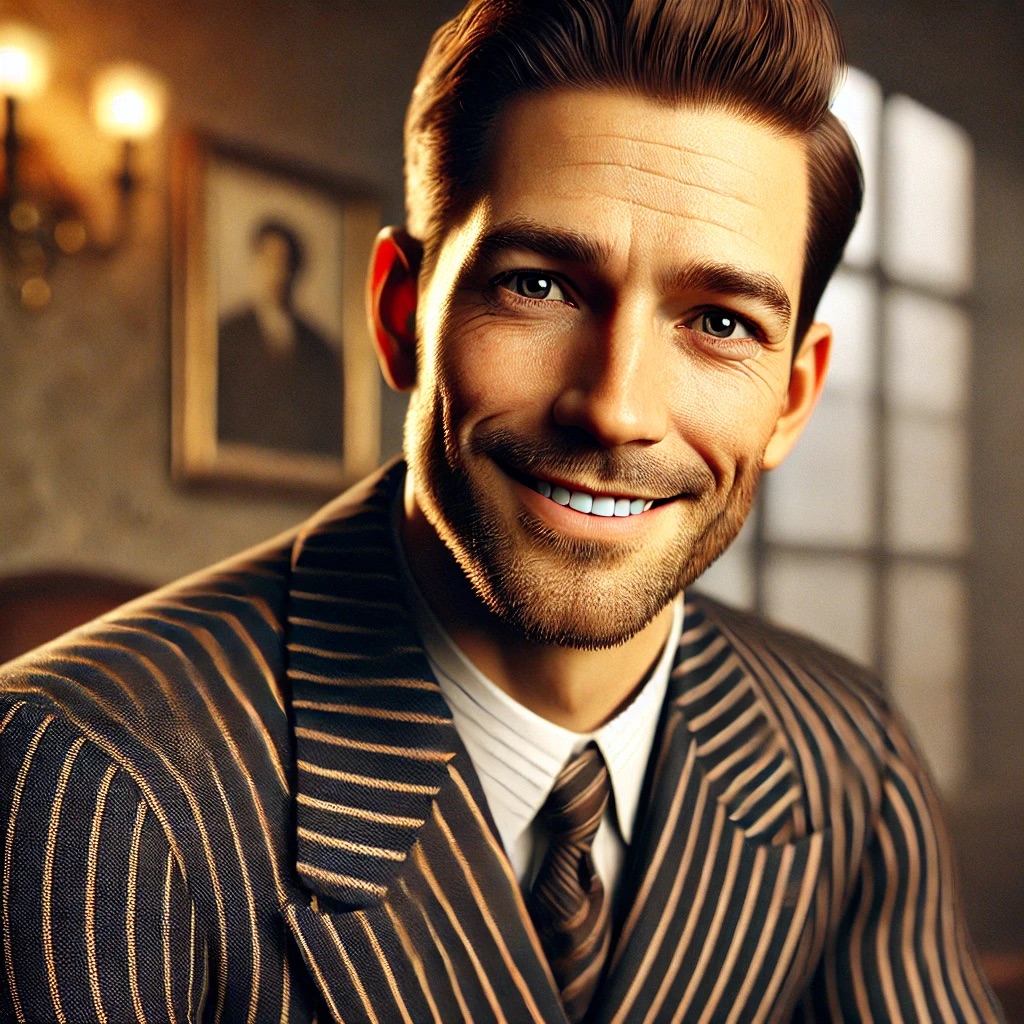
“My dear fellow, that’s just what I want.”
「いやいや、君、それこそ僕が望んでいたことだよ。」

“Oh, it’s pleasant enough if you want to lead the idle life.
I drill with the volunteers twice a week, and lend a hand at the farms.
My wife works regularly ‘on the land’.
She is up at five every morning to milk, and keeps at it steadily until lunchtime.
It’s a jolly good life taking it all round—if it weren’t for that fellow Alfred Inglethorp!”
He checked the car suddenly, and glanced at his watch.
“I wonder if we’ve time to pick up Cynthia.
No, she’ll have started from the hospital by now.”
「ああ、怠惰な生活を送りたいなら、ここはなかなか快適だよ。
週に二回、志願兵と一緒に訓練をして、農場の手伝いもしているんだ。
妻は定期的に『農作業』をしていて、毎朝5時に起きて牛の乳搾りをしているよ。
それから昼食までずっと働き続ける。
全体的に見れば、とてもいい暮らしだ――あのアルフレッド・イングルソープって男さえいなければね!」
彼は突然車を止め、腕時計に目をやった。
「シンシアを迎えに行く時間があるかな?
いや、もう病院を出発してるだろうな。」

“Cynthia! That’s not your wife?”
「シンシアって!それは君の奥さんのことじゃないよね?」

“No, Cynthia is a protégée of my mother’s, the daughter of an old schoolfellow of hers, who married a rascally solicitor.
He came a cropper, and the girl was left an orphan and penniless.
My mother came to the rescue, and Cynthia has been with us nearly two years now.
She works in the Red Cross Hospital at Tadminster, seven miles away.”
「ああ、シンシアは母さんが面倒を見ている子なんだ。
母さんの学生時代の古い友人の娘なんだけど、その友人がろくでもない弁護士と結婚しててね。
そいつが破産して、その娘は無一文で孤児になってしまったってわけさ。
そこで母さんが手を差し伸べて、シンシアはもう2年近くうちにいるよ。
彼女は七マイル離れたタドミンスターの赤十字病院で働いているんだ。」
As he spoke the last words, we drew up in front of the fine old house.
A lady in a stout tweed skirt, who was bending over a flower bed, straightened herself at our approach.
彼の話が終わった頃に、私たちは立派な古い家の前に到着した。
厚手のツイードのスカートを履いた婦人が花壇に身をかがめていたが、私たちの到着に気づいて立ち上がった。


“Hullo, Evie, here’s our wounded hero!
Mr. Hastings—Miss Howard.”
「やあ、エヴィー、僕たちために負傷した英雄が来たよ!
ヘイスティングスさんだ、こちらはミス・ハワード。」
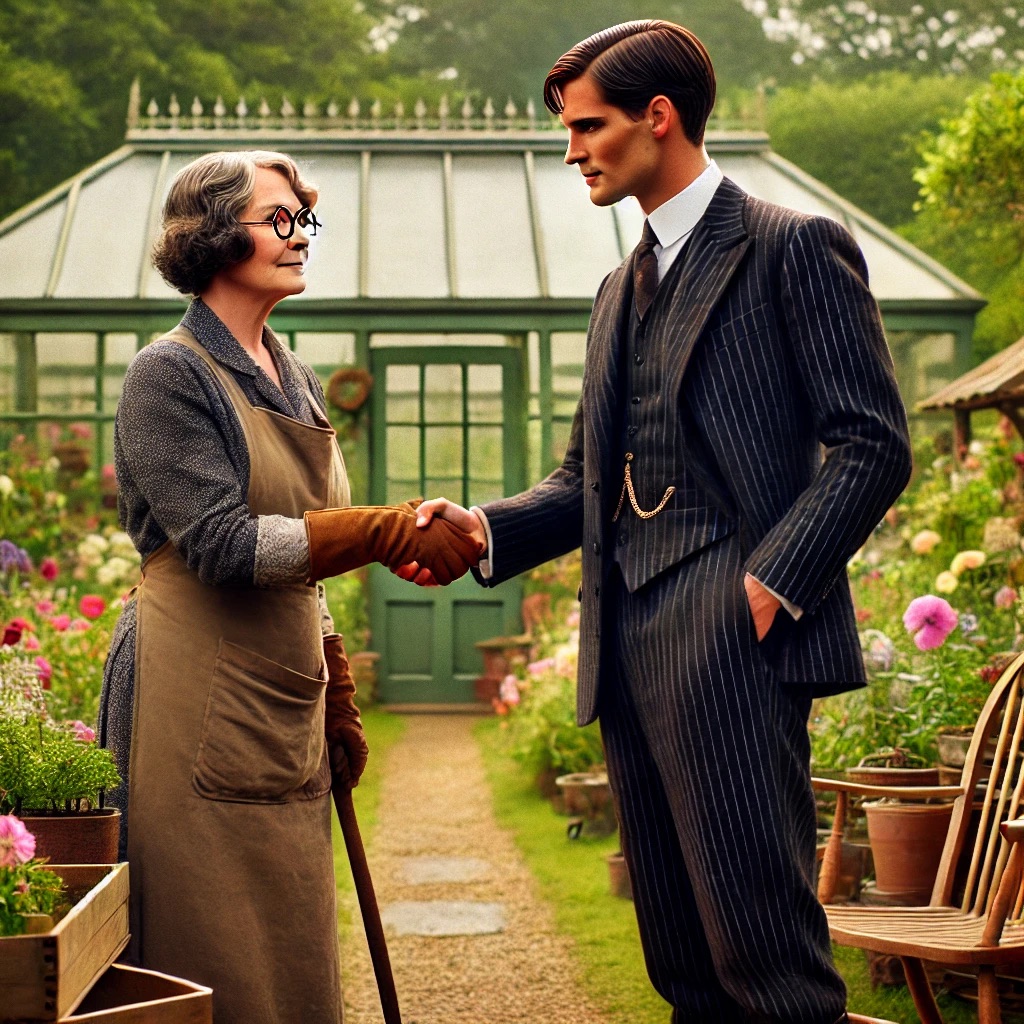
Miss Howard shook hands with a hearty, almost painful, grip.
I had an impression of very blue eyes in a sunburnt face.
She was a pleasant-looking woman of about forty, with a deep voice, almost manly in its stentorian tones, and had a large sensible square body, with feet to match—these last encased in good thick boots.
Her conversation, I soon found, was couched in the telegraphic style.
ミス・ハワードは力強く、痛いくらいの握手をした。
日焼けした顔に深く青い目が印象的な人だった。
彼女は40歳くらいの快活そうな女性で、その太い声は男性的と言えるほどの力強さがあった。
体格は大柄でしっかりしていて、両足もそれにふさわしく、脚先が頑丈な厚手のブーツに包まれていた。
私がまず気づいたのは、彼女の話し方が電報のように簡潔なことだった。

“Weeds grow like house afire. Can’t keep even with ’em.
Shall press you in. Better be careful.”
「雑草が火事のように伸びる。
追いつけやしない。
あなたも手伝ってもらうわよ。覚悟なさい。」

“I’m sure I shall be only too delighted to make myself useful,” I responded.
「お役に立てるなら、喜んでそうさせていただきます。」と私は答えた。

“Don’t say it. Never does. Wish you hadn’t later.”
「そんなこと言っちゃダメ。無理。後で後悔するよ。」

“You’re a cynic, Evie,” said John, laughing.
“Where’s tea to-day—inside or out?”
「エヴィー、厳しいなあ」とジョンが笑いながら言った。
「今日のティータイムはどこだい? 中? それとも外?」

“Out. Too fine a day to be cooped up in the house.”
「外よ。こんな日に家にこもっているなんて無理。」

“Come on then, you’ve done enough gardening for to-day.
‘The labourer is worthy of his hire’, you know.
Come and be refreshed.”
「もう十分庭仕事をしただろう。
『働く者はその労働した分だけの価値がある』って言うからね。
さあ、リフレッシュしに行こう。」

“Well,” said Miss Howard, drawing off her gardening gloves, “I’m inclined to agree with you.”
She led the way round the house to where tea was spread under the shade of a large sycamore.
「そうね」とミス・ハワードは園芸用の手袋を脱ぎながら言った。「あなたの言う通りにしましょう。」
彼女は先頭に立って邸宅を回り、大きなシカモア(西洋カエデ)の木の陰に用意されたお茶のテーブルのところへ向かった。

A figure rose from one of the basket chairs, and came a few steps to meet us.
“My wife, Hastings,” said John.
バスケットチェアの1つから人影が立ち上がり、数歩こちらに近づいてきた。
「僕の妻だよ、ヘイスティングス」とジョンが言った。
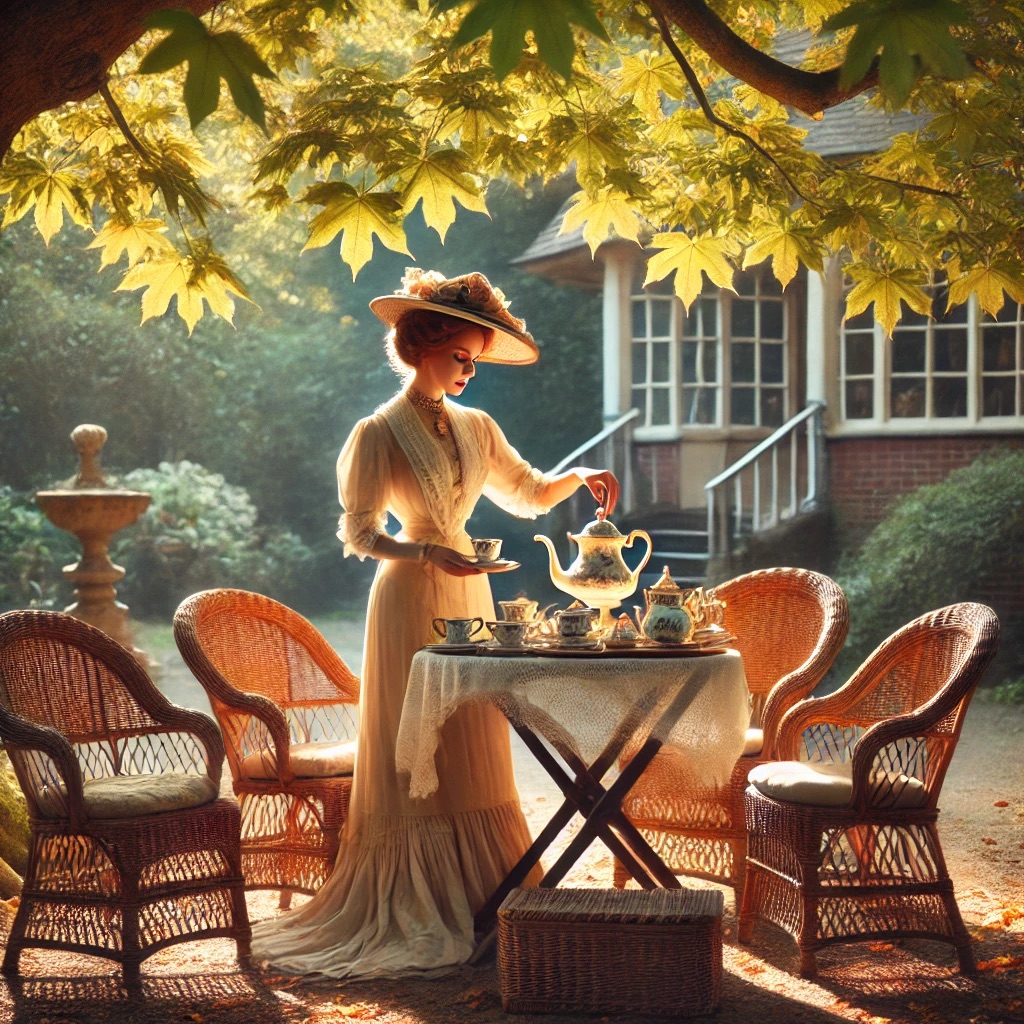
I shall never forget my first sight of Mary Cavendish.
Her tall, slender form, outlined against the bright light; the vivid sense of slumbering fire that seemed to find expression only in those wonderful tawny eyes of hers, remarkable eyes, different from any other woman’s that I have ever known; the intense power of stillness she possessed, which nevertheless conveyed the impression of a wild untamed spirit in an exquisitely civilised body—all these things are burnt into my memory.
I shall never forget them.
私はメアリー・キャヴェンディッシュを初めて見たときのことを決して忘れることはないだろう。
彼女の背の高い、細い体が明るい光を背景に浮かび上がった。
眠れる火のような鮮烈な印象は、彼女の素晴らしい茶色がかった瞳だけで表現されるように思えた。
その瞳は、これまで出会ったどの女性のものとも違っていた。
彼女の静寂の中に持つ激しい力、それでもなお、洗練された身体の中に野生で抑えきれない魂を感じさせる印象—これらすべてが私の記憶に焼き付けられている。
私はそれを決して忘れることはないだろう。

She greeted me with a few words of pleasant welcome in a low clear voice, and I sank into a basket chair feeling distinctly glad that I had accepted John’s invitation.
Mrs. Cavendish gave me some tea, and her few quiet remarks heightened my first impression of her as a thoroughly fascinating woman.
An appreciative listener is always stimulating, and I described, in a humorous manner, certain incidents of my Convalescent Home, in a way which, I flatter myself, greatly amused my hostess.
John, of course, good fellow though he is, could hardly be called a brilliant conversationalist.
彼女は、低く澄んだ声でいくつかの歓迎の言葉をかけてくれた。
そして私はバスケットチェアに沈み込み、ジョンの招待を受け入れて本当によかったと心から感じた。
ミセス・キャヴェンディッシュは私に紅茶を出してくれたが、その控えめな言葉は、彼女が完璧に魅力的な女性であるという私の最初の印象をさらに高めるばかりだった。
共感してくれる聞き手はいつも元気を与えてくれるもので、私は療養ホームでのある出来事をユーモラスに語り、彼女を大いに楽しませたとそう思っている。
当然ながら、ジョンは素晴らしい男ではあるが、決して優れた会話相手とは言えない。

At that moment a well remembered voice floated through the open French window near at hand:
“Then you’ll write to the Princess after tea, Alfred?
I’ll write to Lady Tadminster for the second day, myself.
Or shall we wait until we hear from the Princess?
In case of a refusal, Lady Tadminster might open it the first day, and Mrs. Crosbie the second.
Then there’s the Duchess—about the school fête.”
その時、聞き覚えのある声が近くの開け放たれたフランス窓から聞こえてきた。
「じゃあ、アルフレッド、お茶の後に妃殿下に手紙を書いてくれるわね?
私はタドミンスター夫人に二日目のことについて書いておくわ。
それとも、妃殿下からの返事を待った方がいいかしら?
もしお断りされたら、タドミンスター夫人が初日に開催して、二日目はクロスビー夫人になるかもしれないわね。
それから、公爵夫人がいらっしゃるわね——学校のバザーについて。」

There was the murmur of a man’s voice, and then Mrs. Inglethorp’s rose in reply:
“Yes, certainly. After tea will do quite well.
You are so thoughtful, Alfred dear.”
男性の声がかすかに聞こえ、続いてイングルソープ夫人の声が答えた。
「ええ、もちろんよ。お茶の後で全然大丈夫よ。
あなたって本当に気が利くわね、アルフレッド。」
The French window swung open a little wider, and a handsome white-haired old lady, with a somewhat masterful cast of features, stepped out of it on to the lawn. A man followed her, a suggestion of deference in his manner.Mrs. Inglethorp greeted me with effusion.“Why, if it isn’t too delightful to see you again, Mr. Hastings, after all these years. Alfred, darling, Mr. Hastings—my husband.”
フランス窓少し広く開き、白髪の上品な老婦人が堂々とした顔つきで芝生に歩み出てきた。
それに続いて、一人の男性が控えめな態度で従った。イングルソープ夫人は私を感激した様子で迎えた。「あらまあ、ヘイスティングズさんじゃないの!何年ぶりかしら。
こんなに嬉しいことはないわ。
ねえ、アルフレッド、この方がヘイスティングズさん—
この人は私の夫よ。」
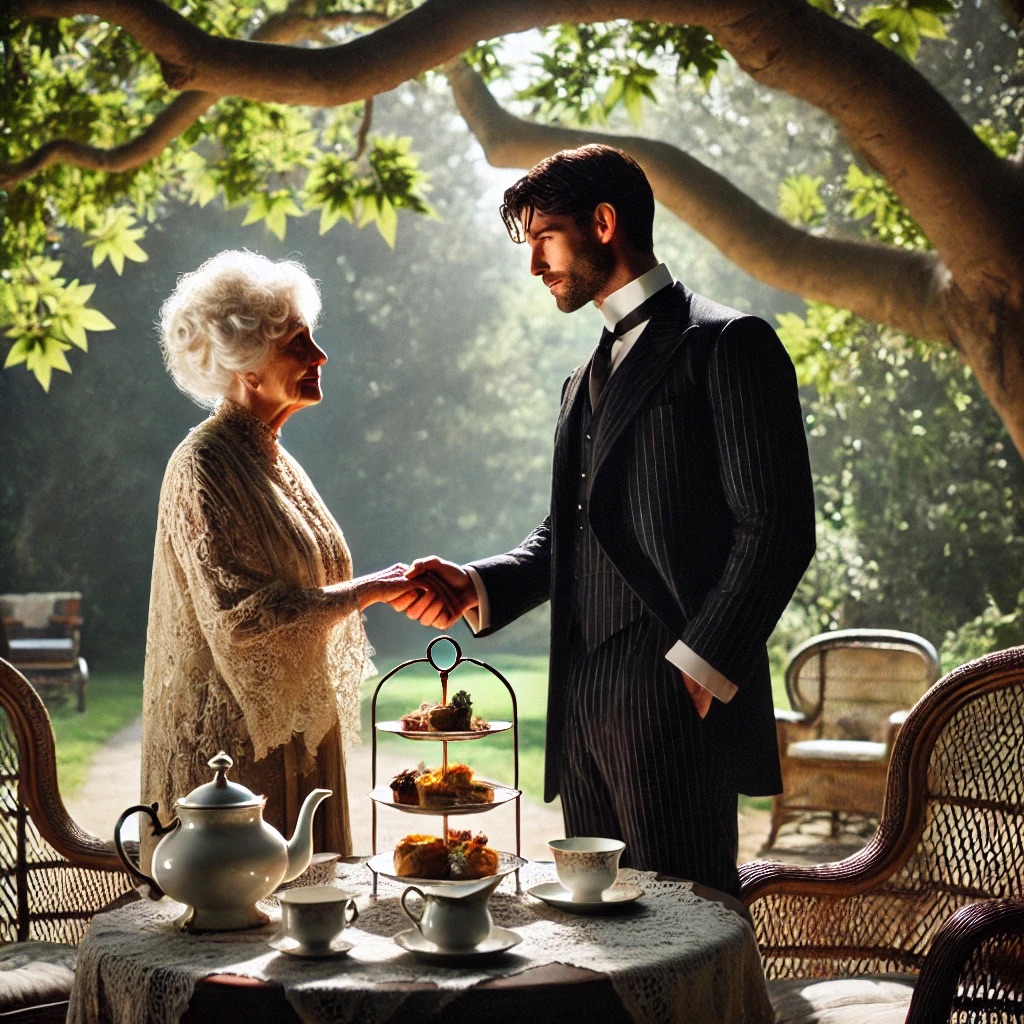
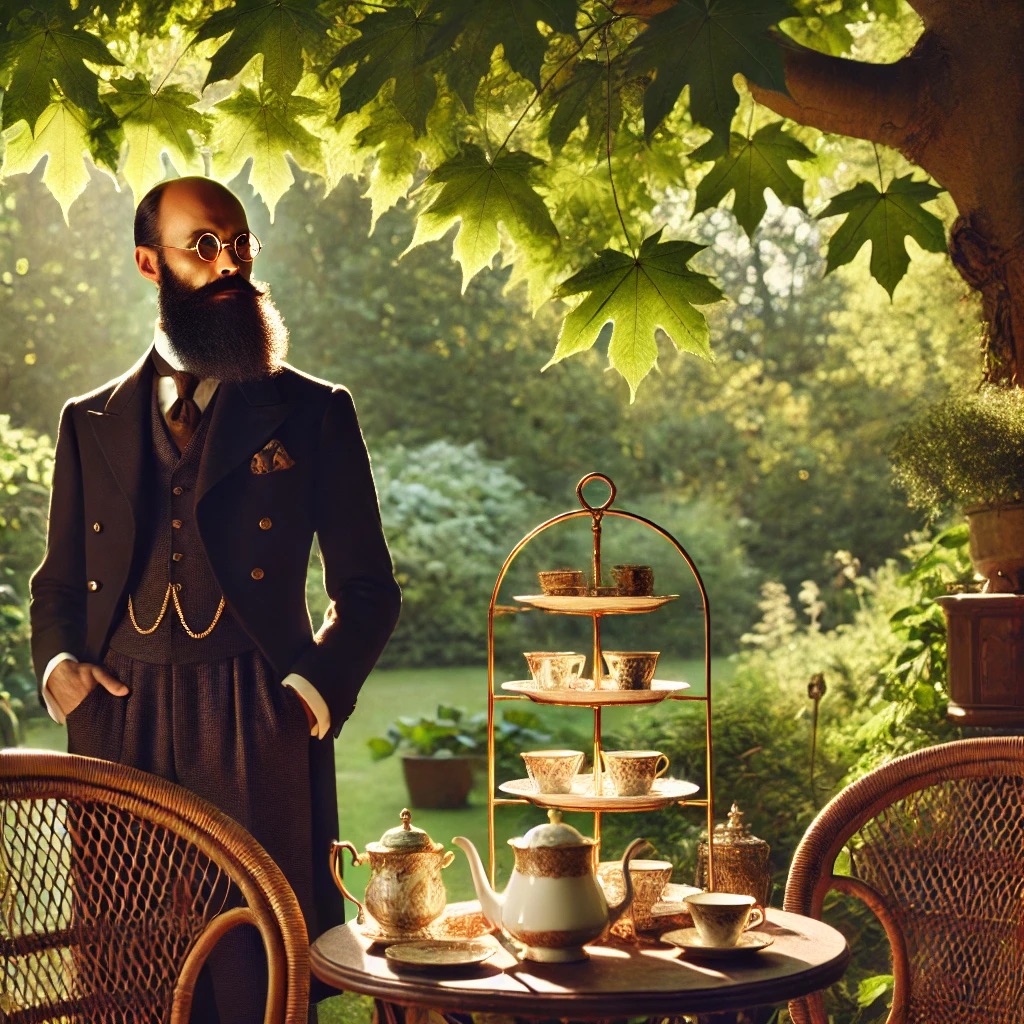
I looked with some curiosity at “Alfred darling”.
He certainly struck a rather alien note.
I did not wonder at John objecting to his beard.
It was one of the longest and blackest I have ever seen.
He wore gold-rimmed pince-nez, and had a curious impassivity of feature.
It struck me that he might look natural on a stage, but was strangely out of place in real life.
His voice was rather deep and unctuous.
私は「ねえ、アルフレッド」氏を少し興味深く観察した。
確かに彼はやや「よそ者」ような雰囲気を漂わせていた。
ジョンが彼の髭を嫌がるのも無理はないと思った。
それは私が今まで見た中でも最も長くて黒い髭だった。
彼は金縁のピンネズをかけており、表情には奇妙な無表情さがあった。
舞台の上では自然に見えるだろうが、現実の生活では不思議なほど場違いに見えた。
声はやや低く、うわべだけの響きがあった。

He placed a wooden hand in mine and said:
“This is a pleasure, Mr. Hastings.”
Then, turning to his wife:
“Emily dearest, I think that cushion is a little damp.”
She beamed fondly on him, as he substituted another with every demonstration of the tenderest care.
Strange infatuation of an otherwise sensible woman!
彼は木のような硬い手を私の手の上に重ねて言った。
「お会いできて光栄です、ヘイスティングズさん。」
それから妻に向き直ってこう言った。
「愛しいエミリー、そのクッションは少し湿っていると思うよ。」
彼女は彼に微笑みかけ、彼はこれ以上にないような優しい気遣いを見せて別のクッションに取り替えた。
まったく、他のことにはあれほど分別ある女性にしては、おかしいくらいののぼせようだ!
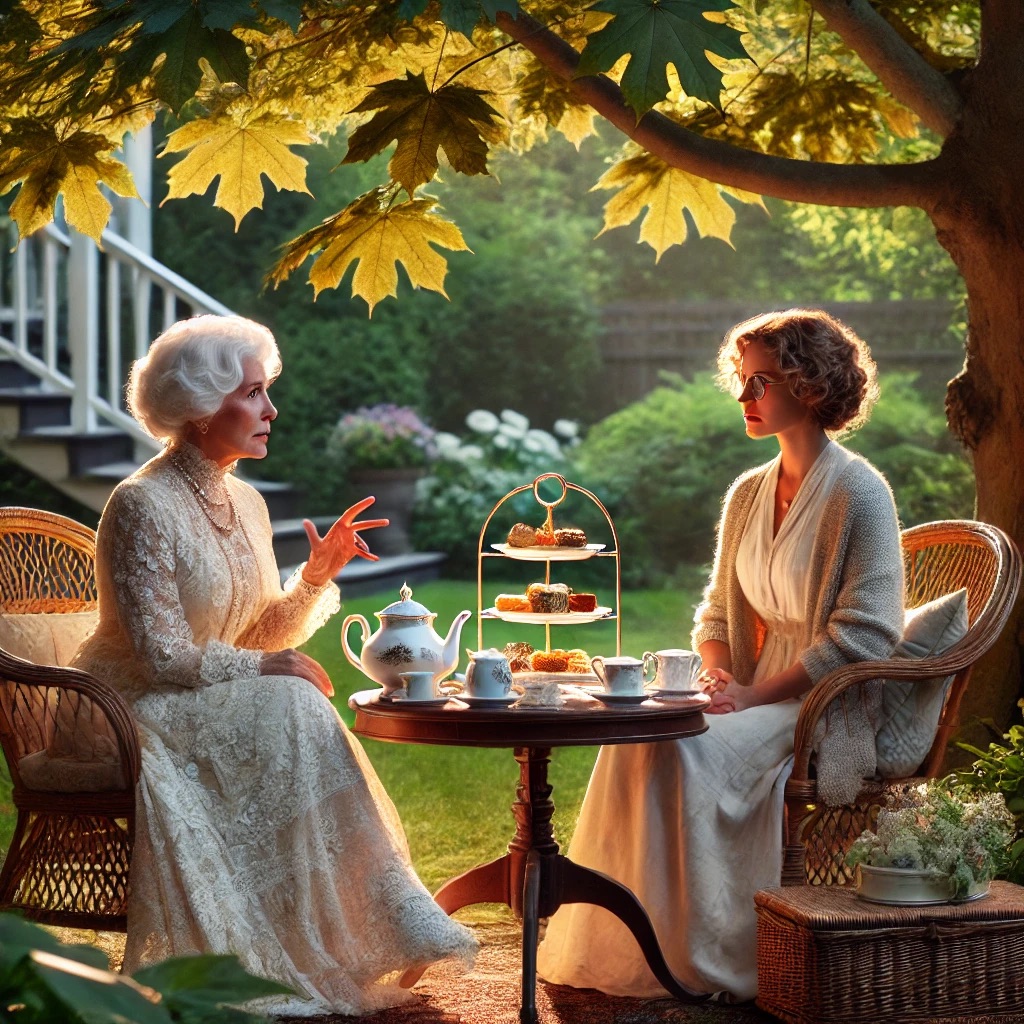
With the presence of Mr. Inglethorp, a sense of constraint and veiled hostility seemed to settle down upon the company.
Miss Howard, in particular, took no pains to conceal her feelings. Mrs.
Inglethorp, however, seemed to notice nothing unusual.
Her volubility, which I remembered of old, had lost nothing in the intervening years, and she poured out a steady flood of conversation, mainly on the subject of the forthcoming bazaar which she was organizing and which was to take place shortly.
イングルソープ氏が現れたことで、集まった人々の間には妙な緊張感と隠された敵意が漂っているように感じられた。
特に、ミス・ハワードは自分の感情を隠そうともしなかった。
しかしながら、イングルソープ夫人は普通ではないことには気づいていないようであった。
私は昔から覚えているが、彼女の話好きな性格は年月を経ても衰えることなく、ほとんどがこれから開催予定のバザーの準備について途切れることのないおしゃべりを続けていた。
Occasionally she referred to her husband over a question of days or dates.
His watchful and attentive manner never varied.
From the very first I took a firm and rooted dislike to him, and I flatter myself that my first judgments are usually fairly shrewd.
話の途中で、日付や予定に関する疑問について夫の意見を求めた。
夫は常に注意深く礼儀正しい態度を崩さなかった。
私は最初からイングルソープ氏に対して強く根深い嫌悪感を抱いていたが、私の第一印象は概ね的確なものだと思っている。
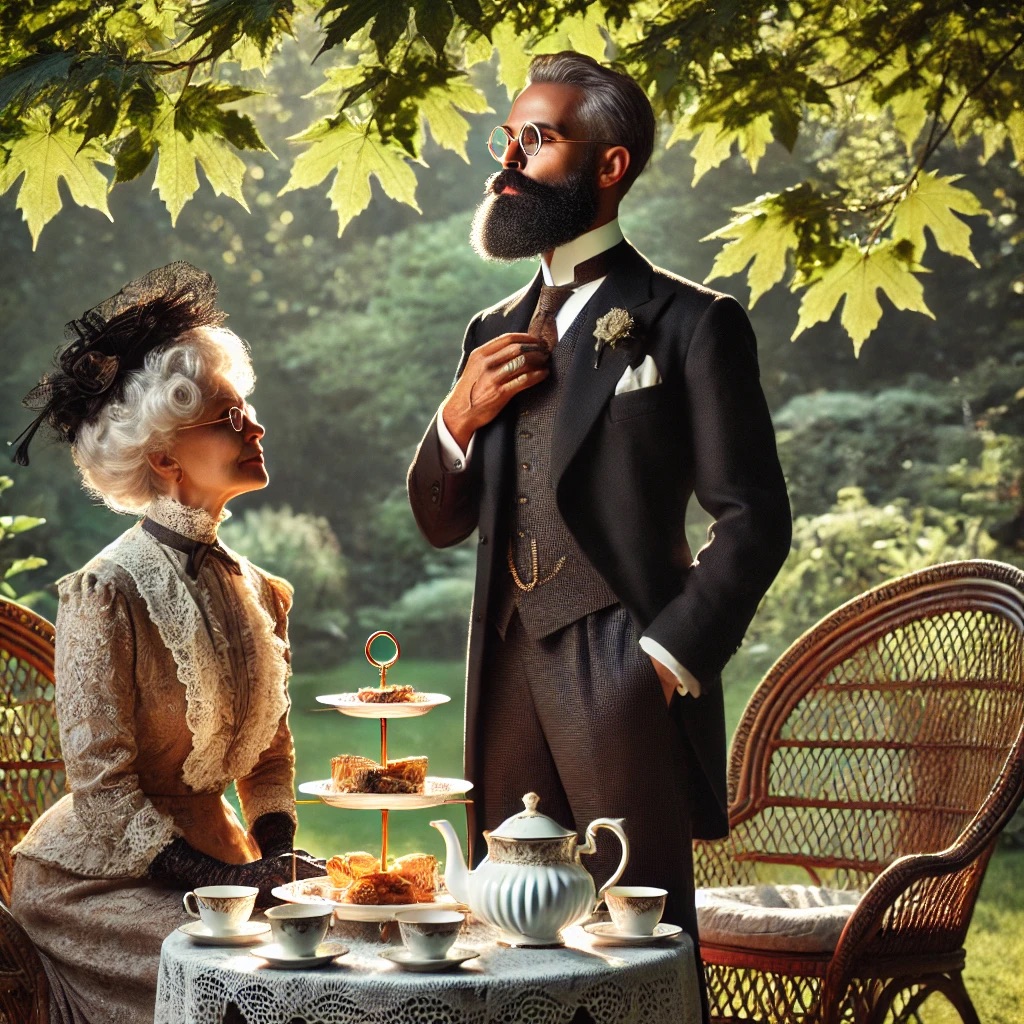

Presently Mrs. Inglethorp turned to give some instructions about letters to Evelyn Howard, and her husband addressed me in his painstaking voice:
“Is soldiering your regular profession, Mr. Hastings?”
その後、イングルソープ夫人が向きなおってイヴリン・ハワードに手紙の指示を出している間に、その夫が慎重な口調で私に話しかけてきた。
「ヘイスティングズさんは、職業軍人でいらっしゃるのですか?」

“No, before the war I was in Lloyd’s.”
「いいえ、戦争が始まる前はロイズ保険組合にいました。」

“And you will return there after it is over?”
「では、戦争が終わったら、またそこに戻られるのですね?」

“Perhaps. Either that or a fresh start altogether.”
「まあ、そこに戻っても、まったく新しいことを始めても、どちらも同じでしょう。」

Mary Cavendish leant forward.
“What would you really choose as a profession, if you could just consult your inclination?”
メアリー・キャヴェンディッシュが身を乗り出してきた。
「もし、あなたの希望通りに職業を選べるとしたら、本当は何をお選びになります?」

“Well, that depends.”
「さあ、その時次第ですね。」

“No secret hobby?”
she asked.
“Tell me—you’re drawn to something?
Everyone is—usually something absurd.”
「内緒にしてる趣味はないんですか?」と彼女が尋ねた。
「何かしら心惹かれることがおありでしょうから教えていただけませんか?
誰でも、大抵は理にかなっていないようなものでしょうけど。」

“You’ll laugh at me.”
「笑われるでしょう。」

She smiled.
“Perhaps.”
彼女は微笑んだ。
「たぶんね。」

“Well, I’ve always had a secret hankering to be a detective!”
「実は、密かに犯罪捜査をやりたいと思っているんです。」

“The real thing—Scotland Yard? Or Sherlock Holmes?”
「本物の刑事さん——スコットランドヤードの? それともシャーロック・ホームズ?」

“Oh, Sherlock Holmes by all means.
But really, seriously, I am awfully drawn to it.
I came across a man in Belgium once, a very famous detective, and he quite inflamed me.
He was a marvellous little fellow.
He used to say that all good detective work was a mere matter of method.
My system is based on his—though of course I have progressed rather further.
He was a funny little man, a great dandy, but wonderfully clever.”
「ああ、もちろんシャーロック・ホームズですよ。
でも本当に真面目な話なんですが、私はこの仕事にものすごく惹かれているんです。
一度ベルギーでとても有名な探偵に会ったことがあるんですが、彼にすっかり惚れ込みましてね。
素晴らしい小柄な人でしたた。
彼はいつも、優れた探偵の仕事というのはただ単に方法論の問題だと言ってました。
私のやり方は彼の方法に基づいていますが——もちろん、少しは進歩しました。
彼は面白い小男で、洒落者でしたけど、本当に頭が切れるんですよ。」

“Like a good detective story myself,” remarked Miss Howard.
“Lots of nonsense written, though. Criminal discovered in last chapter. Everyone dumbfounded. Real crime—you’d know at once.”
「私も探偵小説は好きなのよ」と、ミス・ハワードが言った。
「でも、大抵書かれていることはナンセンスね。犯人が最後の章で見つかるなんて話ばかり。みんな驚き呆れるけど、本当の犯罪だったら、すぐにわかるものでしょ。」

“There have been a great number of undiscovered crimes,” I argued.
「解明されていない犯罪だってたくさんありますよ」と、私は反論した。

“Don’t mean the police, but the people that are right in it. The family. You couldn’t really hoodwink them. They’d know.”
「警察のことじゃなくて、その場にいる人たちのことよ。家族のこと。彼らを本当に欺くなんてできないわ。彼らにはわかるものよ。」

“Then,” I said, much amused, “you think that if you were mixed up in a crime, say a murder, you’d be able to spot the murderer right off?”
「じゃあ」と、私は面白くなったので言った。「もしあなたが犯罪、例えば殺人に巻き込まれたら、犯人をすぐに見抜けるということですか?」

“Of course I should. Mightn’t be able to prove it to a pack of lawyers. But I’m certain I’d know. I’d feel it in my fingertips if he came near me.”
「もちろんわかります。弁護士たちにそれを証明することはできないかもしれないけど、絶対にわかる。犯人が私の近くに来たら、指先で感じる取ることができるわ。」
“It might be a ‘she’,” I suggested.
“Might. But murder’s a violent crime. Associate it more with a man.”
“Not in a case of poisoning.” Mrs. Cavendish’s clear voice startled me. “Dr. Bauerstein was saying yesterday that, owing to the general ignorance of the more uncommon poisons among the medical profession, there were probably countless cases of poisoning quite unsuspected.”
“Why, Mary, what a gruesome conversation!” cried Mrs. Inglethorp. “It makes me feel as if a goose were walking over my grave. Oh, there’s Cynthia!”
A young girl in V.A.D. uniform ran lightly across the lawn.
“Why, Cynthia, you are late to-day. This is Mr. Hastings—Miss Murdoch.”
Cynthia Murdoch was a fresh-looking young creature, full of life and vigour. She tossed off her little V.A.D. cap, and I admired the great loose waves of her auburn hair, and the smallness and whiteness of the hand she held out to claim her tea. With dark eyes and eyelashes she would have been a beauty.
She flung herself down on the ground beside John, and as I handed her a plate of sandwiches she smiled up at me.
“Sit down here on the grass, do. It’s ever so much nicer.”
I dropped down obediently.
“You work at Tadminster, don’t you, Miss Murdoch?”
She nodded.
“For my sins.”
“Do they bully you, then?” I asked, smiling.
“I should like to see them!” cried Cynthia with dignity.
“I have got a cousin who is nursing,” I remarked. “And she is terrified of ‘Sisters’.”
“I don’t wonder. Sisters are, you know, Mr. Hastings. They simp-ly are! You’ve no idea! But I’m not a nurse, thank heaven, I work in the dispensary.”
“How many people do you poison?” I asked, smiling.
Cynthia smiled too.
“Oh, hundreds!” she said.
“Cynthia,” called Mrs. Inglethorp, “do you think you could write a few notes for me?”
“Certainly, Aunt Emily.”
She jumped up promptly, and something in her manner reminded me that her position was a dependent one, and that Mrs. Inglethorp, kind as she might be in the main, did not allow her to forget it.
My hostess turned to me.
“John will show you your room. Supper is at half-past seven. We have given up late dinner for some time now. Lady Tadminster, our Member’s wife—she was the late Lord Abbotsbury’s daughter—does the same. She agrees with me that one must set an example of economy. We are quite a war household; nothing is wasted here—every scrap of waste paper, even, is saved and sent away in sacks.”
I expressed my appreciation, and John took me into the house and up the broad staircase, which forked right and left half-way to different wings of the building. My room was in the left wing, and looked out over the park.
John left me, and a few minutes later I saw him from my window walking slowly across the grass arm in arm with Cynthia Murdoch. I heard Mrs. Inglethorp call “Cynthia” impatiently, and the girl started and ran back to the house. At the same moment, a man stepped out from the shadow of a tree and walked slowly in the same direction. He looked about forty, very dark with a melancholy clean-shaven face. Some violent emotion seemed to be mastering him. He looked up at my window as he passed, and I recognized him, though he had changed much in the fifteen years that had elapsed since we last met. It was John’s younger brother, Lawrence Cavendish. I wondered what it was that had brought that singular expression to his face.
Then I dismissed him from my mind, and returned to the contemplation of my own affairs.
The evening passed pleasantly enough; and I dreamed that night of that enigmatical woman, Mary Cavendish.
The next morning dawned bright and sunny, and I was full of the anticipation of a delightful visit.
I did not see Mrs. Cavendish until lunch-time, when she volunteered to take me for a walk, and we spent a charming afternoon roaming in the woods, returning to the house about five.
As we entered the large hall, John beckoned us both into the smoking-room. I saw at once by his face that something disturbing had occurred. We followed him in, and he shut the door after us.
“Look here, Mary, there’s the deuce of a mess. Evie’s had a row with Alfred Inglethorp, and she’s off.”
“Evie? Off?”
John nodded gloomily.
“Yes; you see she went to the mater, and—Oh,—here’s Evie herself.”
Miss Howard entered. Her lips were set grimly together, and she carried a small suit-case. She looked excited and determined, and slightly on the defensive.
“At any rate,” she burst out, “I’ve spoken my mind!”
“My dear Evelyn,” cried Mrs. Cavendish, “this can’t be true!”
Miss Howard nodded grimly.
“True enough! Afraid I said some things to Emily she won’t forget or forgive in a hurry. Don’t mind if they’ve only sunk in a bit. Probably water off a duck’s back, though. I said right out: ‘You’re an old woman, Emily, and there’s no fool like an old fool. The man’s twenty years younger than you, and don’t you fool yourself as to what he married you for. Money! Well, don’t let him have too much of it. Farmer Raikes has got a very pretty young wife. Just ask your Alfred how much time he spends over there.’ She was very angry. Natural! I went on, ‘I’m going to warn you, whether you like it or not. That man would as soon murder you in your bed as look at you. He’s a bad lot. You can say what you like to me, but remember what I’ve told you. He’s a bad lot!’”
“What did she say?”
Miss Howard made an extremely expressive grimace.
“‘Darling Alfred’—‘dearest Alfred’—‘wicked calumnies’ —‘wicked lies’—‘wicked woman’—to accuse her ‘dear husband!’ The sooner I left her house the better. So I’m off.”
“But not now?”
“This minute!”
For a moment we sat and stared at her. Finally John Cavendish, finding his persuasions of no avail, went off to look up the trains. His wife followed him, murmuring something about persuading Mrs. Inglethorp to think better of it.
As she left the room, Miss Howard’s face changed. She leant towards me eagerly.
“Mr. Hastings, you’re honest. I can trust you?”
I was a little startled. She laid her hand on my arm, and sank her voice to a whisper.
“Look after her, Mr. Hastings. My poor Emily. They’re a lot of sharks—all of them. Oh, I know what I’m talking about. There isn’t one of them that’s not hard up and trying to get money out of her. I’ve protected her as much as I could. Now I’m out of the way, they’ll impose upon her.”
“Of course, Miss Howard,” I said, “I’ll do everything I can, but I’m sure you’re excited and overwrought.”
She interrupted me by slowly shaking her forefinger.
“Young man, trust me. I’ve lived in the world rather longer than you have. All I ask you is to keep your eyes open. You’ll see what I mean.”
The throb of the motor came through the open window, and Miss Howard rose and moved to the door. John’s voice sounded outside. With her hand on the handle, she turned her head over her shoulder, and beckoned to me.
“Above all, Mr. Hastings, watch that devil—her husband!”
There was no time for more. Miss Howard was swallowed up in an eager chorus of protests and good-byes. The Inglethorps did not appear.
As the motor drove away, Mrs. Cavendish suddenly detached herself from the group, and moved across the drive to the lawn to meet a tall bearded man who had been evidently making for the house. The colour rose in her cheeks as she held out her hand to him.
“Who is that?” I asked sharply, for instinctively I distrusted the man.
“That’s Dr. Bauerstein,” said John shortly.
“And who is Dr. Bauerstein?”
“He’s staying in the village doing a rest cure, after a bad nervous breakdown. He’s a London specialist; a very clever man—one of the greatest living experts on poisons, I believe.”
“And he’s a great friend of Mary’s,” put in Cynthia, the irrepressible.
John Cavendish frowned and changed the subject.
“Come for a stroll, Hastings. This has been a most rotten business. She always had a rough tongue, but there is no stauncher friend in England than Evelyn Howard.”
He took the path through the plantation, and we walked down to the village through the woods which bordered one side of the estate.
As we passed through one of the gates on our way home again, a pretty young woman of gipsy type coming in the opposite direction bowed and smiled.
“That’s a pretty girl,” I remarked appreciatively.
John’s face hardened.
“That is Mrs. Raikes.”
“The one that Miss Howard——”
“Exactly,” said John, with rather unnecessary abruptness.
I thought of the white-haired old lady in the big house, and that vivid wicked little face that had just smiled into ours, and a vague chill of foreboding crept over me. I brushed it aside.
“Styles is really a glorious old place,” I said to John.
He nodded rather gloomily.
“Yes, it’s a fine property. It’ll be mine some day—should be mine now by rights, if my father had only made a decent will. And then I shouldn’t be so damned hard up as I am now.”
“Hard up, are you?”
“My dear Hastings, I don’t mind telling you that I’m at my wits’ end for money.”
“Couldn’t your brother help you?”
“Lawrence? He’s gone through every penny he ever had, publishing rotten verses in fancy bindings. No, we’re an impecunious lot. My mother’s always been awfully good to us, I must say. That is, up to now. Since her marriage, of course——” he broke off, frowning.
For the first time I felt that, with Evelyn Howard, something indefinable had gone from the atmosphere. Her presence had spelt security. Now that security was removed—and the air seemed rife with suspicion. The sinister face of Dr. Bauerstein recurred to me unpleasantly. A vague suspicion of everyone and everything filled my mind. Just for a moment I had a premonition of approaching evil.
